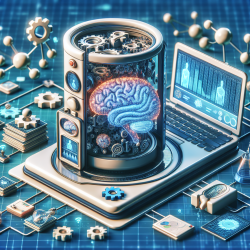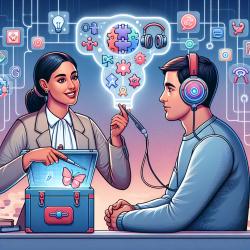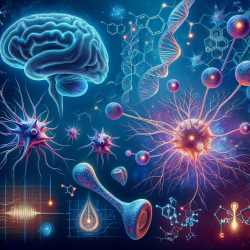Introduction
In the rapidly evolving field of speech-language pathology, the integration of advanced technologies such as deep learning is becoming increasingly essential. The research article "Deep learning of mutation-gene-drug relations from the literature" provides a compelling example of how deep learning can be utilized to extract complex relationships from vast datasets. This methodology can be adapted to enhance the practice of speech-language pathologists (SLPs) by enabling more data-driven and personalized therapy approaches.
Understanding Deep Learning in Context
Deep learning, a subset of machine learning, involves training algorithms to recognize patterns and make decisions based on large datasets. The research by Lee et al. (2018) demonstrated how deep learning can be used to identify mutation-gene-drug relationships by analyzing extensive biomedical literature. The success of this approach, with F1-scores of 0.96 and 0.86 for mutation-gene and mutation-drug relations respectively, underscores the potential of deep learning in extracting meaningful insights from complex data.
Application in Speech-Language Pathology
For SLPs, deep learning can be applied to improve therapy outcomes through the analysis of large datasets of speech and language patterns. By employing similar methodologies, SLPs can:
- Identify speech and language patterns associated with specific disorders.
- Develop personalized therapy plans based on individual speech patterns.
- Predict therapy outcomes and adjust interventions accordingly.
These applications can lead to more effective and efficient therapy sessions, ultimately improving outcomes for children receiving speech-language services.
Encouraging Further Research
The integration of deep learning into speech-language pathology is still in its nascent stages. Practitioners are encouraged to engage with ongoing research and consider how these methodologies can be adapted to their practice. By collaborating with data scientists and participating in interdisciplinary research, SLPs can contribute to the development of innovative tools and techniques that leverage deep learning for enhanced therapy outcomes.
Conclusion
As demonstrated by the research on mutation-gene-drug relations, deep learning holds significant promise for transforming the field of speech-language pathology. By adopting data-driven approaches and engaging in further research, practitioners can enhance their skills and improve therapy outcomes for children. To read the original research paper, please follow this link: Deep learning of mutation-gene-drug relations from the literature.










